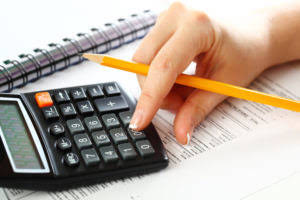The use of blockchain technology in enterprise financial accounting information sharing PLOS One
Data da publicação: 21 de maio de 2021 Categoria: Bookkeeping
The impact and potential applications of blockchain technology in ERP systems were discussed through literature reviews and case analyses. The findings emphasized that blockchain technology could enhance the efficiency and security of ERP systems. They aimed to leverage blockchain’s distributed and tamper-proof nature to enhance the accuracy and credibility of online sentiment analysis. In summary, a review and analysis of relevant literature indicate a fast-growing trend in the research and application of blockchain technology in various fields. These studies provide valuable references and insights, further underscoring the importance and potential value of applying blockchain technology in enterprise financial accounting information sharing.
Blockchain’s Impact on Modern Accounting Practices

Security is a growing concern in accounting, especially with more financial data stored and shared online. Blockchain technology creates immutable, transparent records of transactions, making it nearly impossible to alter or delete past entries without detection. The finance and accounting industry is going through rapid changes, driven by digital transformation in finance and a wave of new tools designed to make work faster, more accurate, and more secure. From automation and AI to blockchain in accounting and advanced cloud solutions, these innovations are shaping the future of how businesses manage their finances. While automation, real-time analytics, and cloud technology are https://hcwellness.thelandingspages.com/ebay-bookkeeping-accounting-complete-guide-for/ powerful, blockchain in accounting is emerging as one of the most disruptive forces in the field.

Table 2. The evaluation results for the experimental group and the control group across other indicators.
As goods move along the supply chain, each transaction is recorded in a transparent and immutable blockchain ledger. Smart contracts automate key actions, such as triggering payments upon successful delivery. Suppliers and manufacturers have real-time visibility into the status of their shipments. Auditors can access the shared ledger to verify transactions, eliminating the need for extensive manual reconciliation. Despite its reputation for security, blockchain systems are not entirely immune to cybersecurity vulnerabilities.
3. Evidence-Based Understanding of Blockchain’s Impact on ESG

Details on the potential of blockchain, its implications for auditors, how the accountancy profession can lead and what skills are necessary for the future. As blockchain technology continues to advance and new and different uses are found, it will be up to the accountancy profession to ensure that its promises of transparency and accountability are fulfilled. Auditing requires the confirmation of Mental Health Billing transactions and balances on firms’ accounting ledgers at the end of the reporting period due to time-lags, reconciliations, and accounting entries.
- Explore how blockchain technology is transforming accounting with enhanced transparency, efficiency, and real-time financial insights.
- Ifthe adoption of new technologies such as blockchainchanges the process of conducting transactions,accountants and auditors should understand thechanges to correctly reflect them in their work.
- Secondly, in blockchain, the payments will be analyzed only when the ID of the verified worker matches with the work records.
- Tax authorities can use smart contracts to cross-check reported income against actual transactions on the blockchain, quickly identifying discrepancies and safeguarding the tax system’s integrity.
- For industries governed by regulations such as the Sarbanes-Oxley Act, blockchain can streamline compliance and auditing processes.
- Blockchain offers a permanent, transparent, and secure record of every transaction.
Payroll Management

In accounting, this means that certain financial transactions can be programmed to trigger automatic entries or actions, reducing manual intervention and potential errors. At its core, blockchain operates as a distributed ledger shared among participants, each possessing a copy of the entire chain. When a financial transaction occurs, it is grouped with other transactions into a block. This block is then broadcast to the network, where participants validate its accuracy through consensus mechanisms like Proof of Work or Proof of Stake. While blockchain enhances security, it demands a deep understanding of cryptography and distributed ledger technology. Accountants need to upskill and adapt to these technical nuances to effectively integrate blockchain into their workflows.

- It allows real-time access to financial data, which means companies can perform continuous auditing instead of waiting for quarterly or yearly reports.
- Overall, integrating blockchain into accounting can be a complex process with many considerations.
- By defining goals upfront, businesses can measure progress and evaluate whether the new tools are delivering value.
- With proper planning and implementation, companies will enjoy greater security, accuracy, transparency and efficiency when managing their finances using blockchain.
- While challenges such as scalability, integration complexities, and regulatory considerations exist, proactive adaptation and collaboration are key to harnessing blockchain’s benefits.
- At Invensis, we offer expert finance and accounting services to support the needs of businesses across diverse industry verticals.
The technology’s transparent and immutable ledger ensures accurate and tamper-proof financial records. This enhances accountability and reduces the risk of financial discrepancies or fraudulent activities. Its open and immutable ledger ensures all parties involved have access to the same data, reducing discrepancies and fraud. This transparency is particularly impactful in industries like blockchain in accounting banking and supply chain management, where blockchain can track goods and funds movement precisely. Blockchain technology proposes an alternative accounting information system that mitigates the challenges faced by the current double-entry system and transforms the technological skill set and focus of the profession. It promises to provide better data quality, increase financial reporting transparency, and provide real-time reporting in an environment that increases trust and lessens the opportunity for fraud.
- Alongside other automation trends such as machine learning, blockchain will lead to more and more transactional-level accounting being done – but not by accountants.
- Encrypt data using robust encryption algorithms to ensure that only authorized personnel can decrypt and access the data during sharing and transmission.
- Blockchain technology is transforming financial auditing by providing a secure and transparent framework for verifying transactions.
- Blockchain is transforming taxation processes by offering a transparent and secure framework for recording transactions, enhancing tax reporting and collection.
- This phased approach allows the team to test new systems, work out any issues, and demonstrate tangible benefits early on.
- This level of immutability is why blockchain technology is commonly referred to as a “trust machine”.
This capability aids compliance with regulations such as the Dodd-Frank Act and supports internal governance by identifying discrepancies or anomalies early. Schmitz and Leoni (2019) also argue that blockchain has limited capabilities to detect fraudulent financial transactions from the beginning. Ernst & Young (EY), a leading global professional services firm, utilized blockchain for inventory auditing. They developed a blockchain-based platform to reconcile and verify inventory items for a wine distributor in an efficient, accurate, and tamper-proof manner. The result was reduced audit time and enhanced confidence in financial reporting. Blockchain’s decentralized architecture and consensus mechanisms optimize transaction processing.

